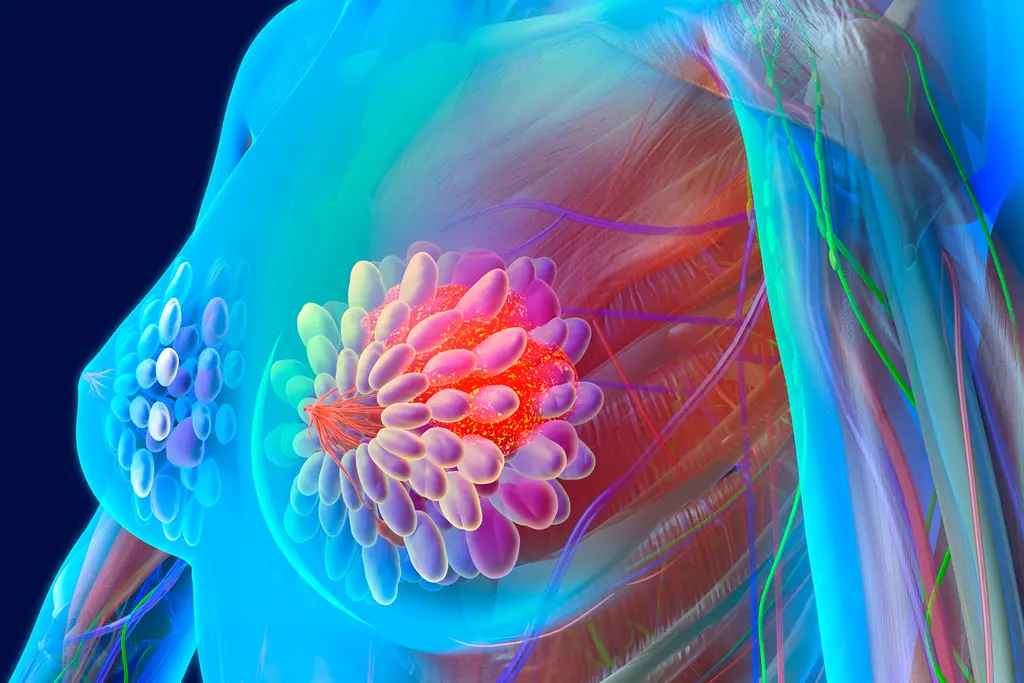
HER2-positive (HER2+) breast cancer is a type of breast cancer that tests positive for human epidermal growth factor receptor 2 (HER2), a protein that promotes cancer cell growth. It tends to be aggressive.
The good news is that treatments for this cancer, especially those that directly target HER2, do a great job fighting it off. They come with a range of rather unpleasant side effects, as all cancer treatments do. But there is a silver lining: We know a lot of tips, tools, and strategies to make life during treatment easier.
Help for Hair Loss
Hair loss can be a very distressing side effect of cancer treatment. It happens because cancer-fighting drugs, especially chemotherapy, damage your hair follicles. If you’re anxious about it, consider these tips before you start your treatment:
- Ask your doctor if you should try a cooling cap, a device that may reduce hair loss during chemo.
- Cut your hair short to ease the transition.
- If you want a wig, shop for one before treatment is in full swing. Your scalp will be more sensitive then.
Do you already have hair loss due to HER2+ breast cancer treatment? Be kind to your scalp and hair.
- Protect your head from heat and cold.
- Wear broad-spectrum sunscreen on your scalp.
- Be gentle when you brush and wash your hair.
- Use styling tools and wear ponytails as little as possible, as these things can tug on your hair.
Dealing with Diarrhea
Diarrhea is common with certain drugs for HER2+ breast cancer, such as pertuzumab (Perjeta). If your diarrhea is mild, these steps can help your body manage:
- Drink lots of clear liquids throughout the day.
- Add low-fiber foods -- such as bananas and toast -- as you start to feel better.
- Avoid dairy, spicy or high-fat foods, alcohol, caffeine, orange juice, and prune juice, all of which can irritate the digestive tract.
If your diarrhea is severe or starts to keep you from your daily activities, let your doctor know as soon as possible. You may need prescription medications or IV fluids in the hospital.
Reduce Nausea and Vomiting
You should also be prepared for nausea and vomiting. These are common side effects of many cancer drugs, including the HER2+ breast cancer drug trastuzumab (Herceptin).
When nausea strikes -- and even before -- ask your doctor to prescribe medication for it. There are many options, but some can be expensive. Ask about cost and insurance coverage.
You can also ease symptoms through diet choices. A few to live by while you’re in treatment:
- Stay away from your favorite foods when you have nausea. Otherwise, you might not like them after treatment because of a negative association.
- Eat a meal or small snack before chemotherapy treatment.
- Try small amounts of easy-to-eat, high-calorie foods several times a day.
Prevent and Protect Dry, Itchy, Sore Skin
Cancer treatments can make your skin dry, itchy, and easily sunburned (known as photosensitivity). Be proactive about skin care if you want to keep these symptoms in check.
Use only the products your health care team recommends. They’ll all be mild and gentle on skin. In addition:
- Moisturize your skin to ward off dryness and itchiness.
- Prevent sunburn with sunscreen. Wear clothes that cover as much skin as possible.
- Shave less often. Use an electric razor if your skin is sore.
- Take short showers or baths in lukewarm water.
- Apply a cool washcloth to dry, itchy patches.
Conceal Skin Discoloration
Skin discoloration can be an unsightly surprise during and after cancer treatment. Areas of your skin could turn darker (hyperpigmentation), or red, or take on shades of black, blue, green, or yellow. You might also have a rash, especially as a reaction to shots.
This all should fade after treatment. But if you want to cover it up, experts say you can use makeup to cover rashes caused by anticancer medications. Just be aware that your attempt could backfire: Any product you put on your skin could irritate it, even if you used it with no problems before treatment. Your safest bet is to apply one concealing product at a time.
Nail Changes
Nail changes are a common side effect of targeted therapies and certain chemotherapy drugs. Usually, these changes affect the color or texture of your nails and aren’t too bothersome.
There’s not much you can do in the way of prevention, but there are some steps to protect weak fingernails and toenails.
- Keep nails clean. Clip them short so you don’t tear them.
- Wear gloves when you do household chores, including dishes, laundry, and cleaning.
- Avoid manicures and pedicures.
- Don’t wear shoes that feel snug.
Look Your Best
It may seem silly to talk about fashion choices in the same breath as breast cancer treatment. But the truth is, what you wear as you go through it can help lessen the impact of side effects.
Fashion for fatigue. Most people who are in cancer treatment still have to hold down jobs. Be sure you have a fatigue-friendly wardrobe for the office: clothes that don’t easily wrinkle, and comfortable shoes on days your body won’t tolerate anything else.
Weight change and your wardrobe. Chemo can cause weight loss. Steroids can cause bloating. While you go through treatment, have some clothes that are loose and unstructured from the start, so you can wear them confidently as your weight changes.
Sensitive skin needs smooth fabrics. Skin can get more sensitive, dry, or moist as therapy progresses. You don’t want to wear wool or anything else scratchy, even in cold weather. Go for smooth, breathable fabrics, like soft cotton, silk, or rayon, in a style you love.
Show Sources
Photo Credits:
Header Image: Wavebreakmedia Ltd / Getty Images
Inset 1: Floortje / Getty Images
Inset 2: boophotography / Getty Images
SOURCES:
Mayo Clinic: “HER2-positive breast cancer: What is it?” “Diarrhea: Cancer-related causes and how to cope.”
American Cancer Society: “Coping with Hair Loss,” “Managing Nausea and Vomiting at Home.”
National Cancer Institute: “FDA Clears Wider Use of Cooling Cap to Reduce Hair Loss during Chemotherapy,” “Skin and Nail Changes during Cancer Treatment.”
Annals of Oncology: “Incidence and management of diarrhea in patients with HER2-positive breast cancer treated with pertuzumab.”
Breastcancer.org: “Skin Discoloration.”
Memorial Sloan Kettering Cancer Center: “Caring for Your Skin during and after Cancer Treatment.”
Cosmetic Executive Women Foundation/Cancer+Careers: “Clothing During Cancer.”
